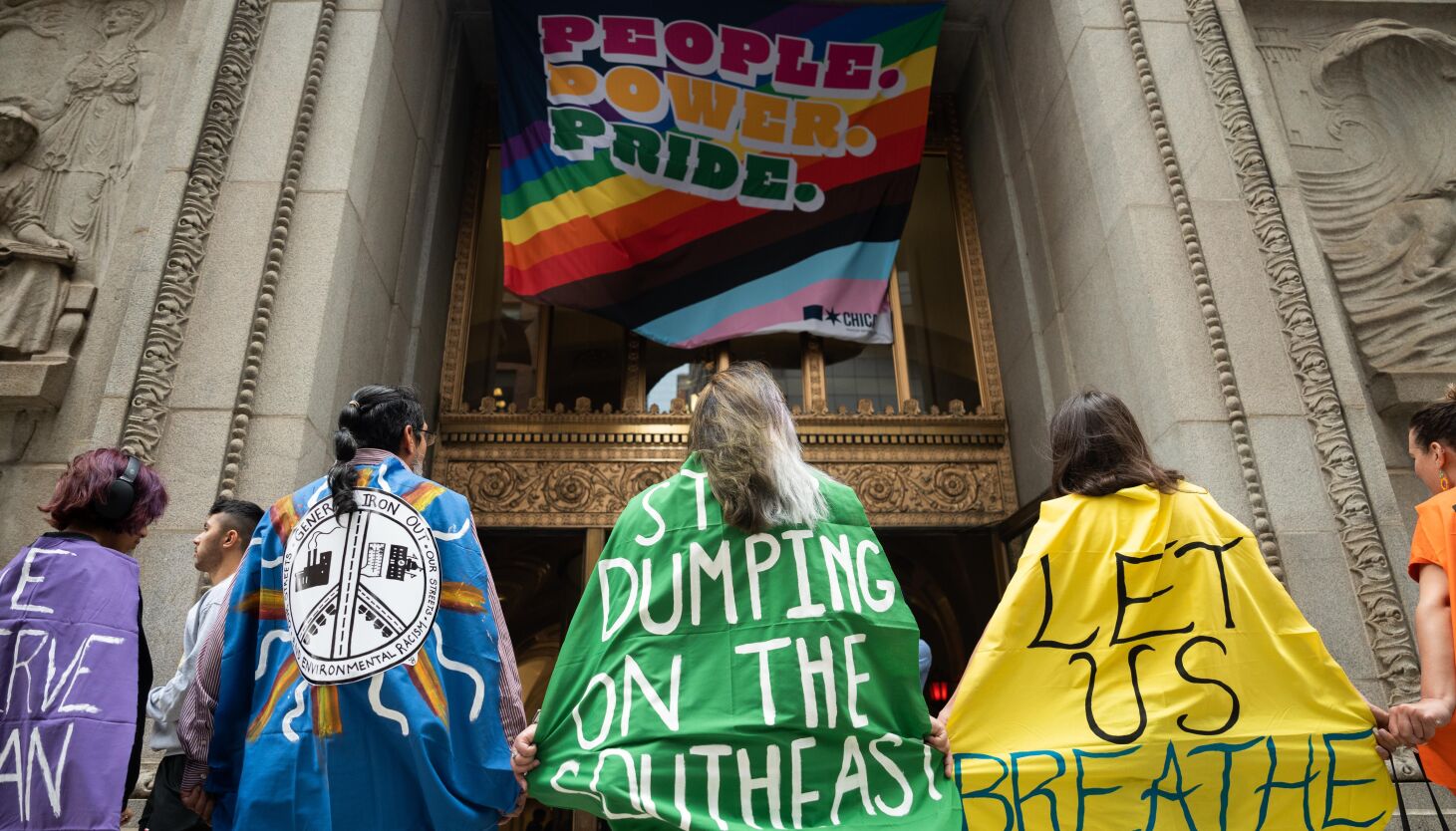



Mayor Brandon Johnson’s administration is proposing a series of reforms aimed at changing city practices after federal investigators last year determined Chicago violates the civil rights of its residents by concentrating polluting businesses in Black and Brown communities.
The proposals include new policies for city departments that include better response times to environmental complaints, measures to reduce air pollution from large diesel-fueled trucks, public engagement around planning and development and investments in so-called environmental justice communities, areas that receive a disproportionate share of pollution.
The Johnson administration also will ask the City Council to pass new laws that make it more difficult to continue placing polluting businesses in the same communities that have historically received them, all on the city’s South and West Sides. The content of a binding agreement with the Department of U.S. Housing and Urban Development that promises to end discriminatory practices would be passed into law under the plan.
Johnson promised to advance “environmental justice alongside economic development.”
“In the months to come, we will work tirelessly to build support for a new ordinance that protects all Chicagoans from the cumulative impact of environmental burdens,” Johnson said.
HUD wrapped up a more than year and a half investigation of Chicago in 2022 after Southeast Side community groups complained that the planned relocation of the General Iron scrap metal business in Lincoln Park to East Side was discriminatory. The investigators agreed that moving the business, deemed a nuisance in the white, wealthy neighborhood, to a Latino community surrounded by Black residential areas was a civil rights violation.
Though Mayor Lori Lightfoot denied the permit to allow the relocated scrap-metal operator to open on the Southeast Side at East 116th Street along the Calumet River, the business’ owner is asking a judge to overturn that decision.
Regardless, Chicago needs to change its ways, the feds said, and Lightfoot signed the binding agreement with President Joe Biden’s administration in the spring just before Johnson took office.
“This is a milestone in a much longer journey,” said Olga Bautista, who leads one of the Southeast Side community groups that brought the civil rights complaint. The Johnson plan “is not going to solve everything but it does put forward the issues,” she said.
After a citywide study of the cumulative impact of pollution and other social stresses that began in the spring of 2022, Chicago now defines a broader area of what it calls environmental justice communities that include Austin, East Garfield Park, Englewood, Humboldt Park and other South and West areas.
These communities are affected by industry and heavy traffic from busy roads, the city found, and they join other neighborhoods previously identified as suffering from too much pollution, including Little Village, McKinley Park and South Deering.
The analysis took into consideration both the amount of pollution and other social stresses common in the largely low-income communities of color.
“These are the areas with the greatest combined environmental health and social burdens,” said Megan Cunningham, the Department of Public Health deputy director who oversaw the cumulative burden study.
Angela Tovar, the city’s top environmental officer hired by Lightfoot, began talking about a city ordinance to combat the cumulative burden of pollution in 2020.
“This is a process that took years because to think about what we’re doing requires systemic change,” Tovar said.
The Johnson plan also calls for publicly accessible data on a number of environmental factors, including pollution levels by community, historical locations of dirty industry and chronic disease rates in children.
The city’s plan was also created after collaboration with a number of environmental justice organizations, including People for Community Recovery and Little Village Environmental Justice Organization.
Cheryl Johnson, whose group People for Community Recovery helped bring the HUD complaint, called the collaboration with City Hall “a commitment that our lived experience will inform the changes to a racist system of zoning in Chicago.”
